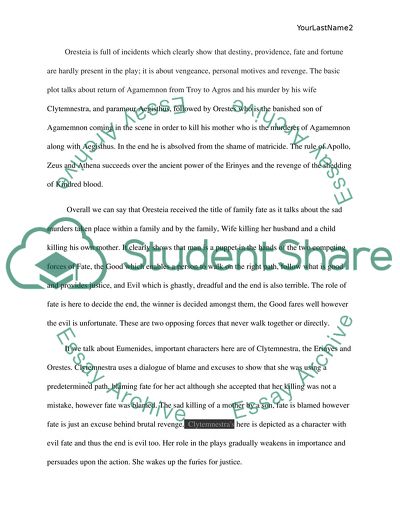Cite this document
(What Is the Role of Fate in the Oresteia Essay Example | Topics and Well Written Essays - 1750 words, n.d.)
What Is the Role of Fate in the Oresteia Essay Example | Topics and Well Written Essays - 1750 words. https://studentshare.org/literature/1788750-aeschylus-oresteia-im-not-sure-of-which-subject-it-falls-to
What Is the Role of Fate in the Oresteia Essay Example | Topics and Well Written Essays - 1750 words. https://studentshare.org/literature/1788750-aeschylus-oresteia-im-not-sure-of-which-subject-it-falls-to
(What Is the Role of Fate in the Oresteia Essay Example | Topics and Well Written Essays - 1750 Words)
What Is the Role of Fate in the Oresteia Essay Example | Topics and Well Written Essays - 1750 Words. https://studentshare.org/literature/1788750-aeschylus-oresteia-im-not-sure-of-which-subject-it-falls-to.
What Is the Role of Fate in the Oresteia Essay Example | Topics and Well Written Essays - 1750 Words. https://studentshare.org/literature/1788750-aeschylus-oresteia-im-not-sure-of-which-subject-it-falls-to.
“What Is the Role of Fate in the Oresteia Essay Example | Topics and Well Written Essays - 1750 Words”. https://studentshare.org/literature/1788750-aeschylus-oresteia-im-not-sure-of-which-subject-it-falls-to.


